Last updated on May 17th, 2023 at 06:12 am
The political climate of today views a candidate’s persona as a brand that goes beyond political party affiliations and government institutions. Donald Trump has an influence on both Republican presidential candidates and the general public. Trump’s status as a political outsider, his outspoken nature, and his disregard for established norms and expectations of presidential behavior kept him in the public eye and created deep divisions among partisans. Social media became an essential platform for political communication during this era, and Trump’s status as a celebrity and strong leader allowed him to exert substantial influence over his millions of Twitter followers. Nevertheless, his behavior and persona are perceived differently by Republicans and Democrats, fueling political polarization in the United States.
The Trump Legacy: How His Political Views are Shaping the Future of American Politics
Donald Trump had a significant impact on global politics. His brand of populist politics emphasized nationalist and anti-establishment rhetoric, which has influenced other politicians, particularly on the right. Trump’s use of social media to communicate directly with his followers has also inspired similar strategies among other politicians. However, Trump’s polarizing style of politics, focus on restricting immigration, protectionist policies, promotion of conspiracy theories, personal attacks on opponents, and distrust of experts have also contributed to political polarization, breakdown of trust in institutions, and controversies surrounding gender equality and border security. Now take a look at Trump’s political views.
Populism:
Donald Trump’s brand of populist politics has had an impact on politicians around the world, particularly those on the right. His nationalist and anti-establishment rhetoric has been influential in shaping the views of politicians who share similar beliefs.
Social Media:
Trump use of social media, particularly Twitter and Facebook, to communicate directly with his followers, but after the ban on his Twitter account Trump started to use Truth Social and currently he is active in truth social, as the election will come nears maybe Trump again comes to his Twitter account because he can’t ignore his huge fan following on Twitter nearly about 100+ million on both platform (Twitter & Facebook). Trump’s use of social media has inspired other politicians to adopt similar strategies. This has been seen both during campaigns and while governing, with politicians using social media to bypass traditional media outlets and connect directly with their base.
Polarization:
Trump’s polarizing style of politics has contributed to a broader trend of political polarization in many countries. His tendency to pit supporters against critics has created deep divisions that can be difficult to overcome.
Anti-Immigrant Sentiment:
Trump’s focus on restricting immigration and building a border wall has been adopted by other politicians on the right who see it as a winning issue with their base. This has contributed to a rise in anti-immigrant sentiment in many countries.
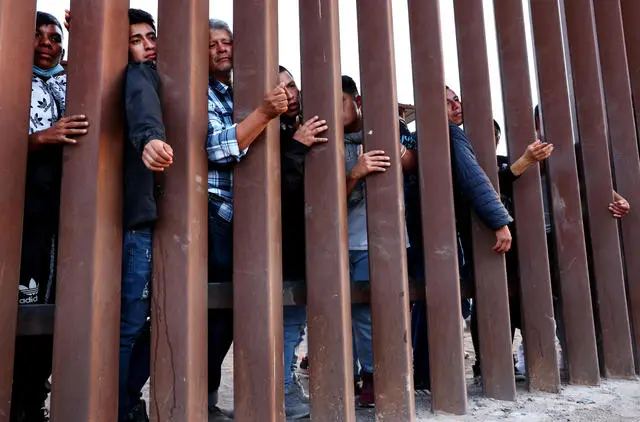
Trade Protectionism:
Trump’s protectionist policies, such as his trade war with China and the renegotiation of NAFTA, have been emulated by some politicians who believe that protecting domestic industries is key to economic growth. This has led to a rise in trade protectionism in many countries.
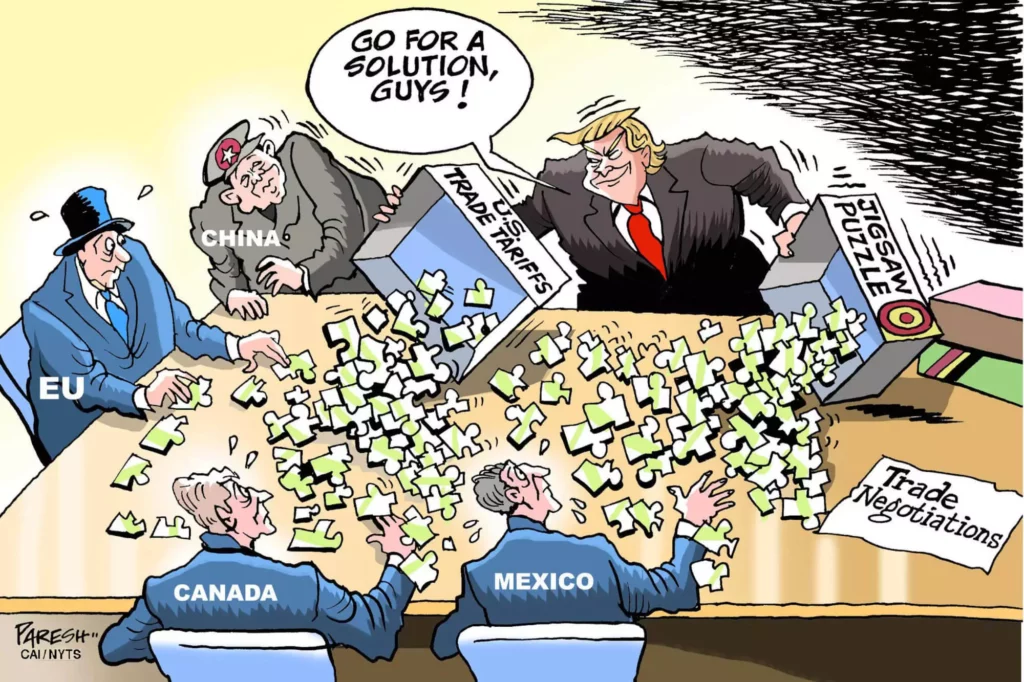
Gender Equality:
Donald Trump’s views on gender equality have been controversial. While he has signed laws aimed at promoting women’s entrepreneurship and access to STEM education, he has also been accused of sexual harassment and assault by multiple women and criticized for his derogatory comments about women. His administration’s policies on reproductive rights have also faced criticism.
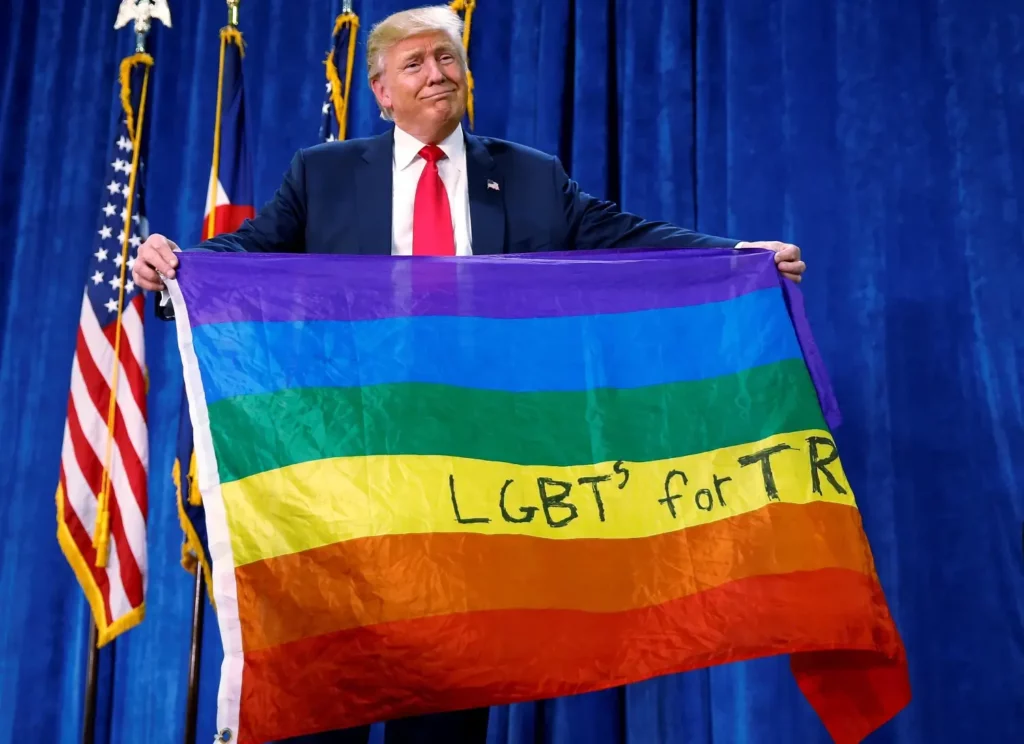
Border Security:
Donald Trump made border security a major issue during his presidency, advocating for stricter immigration policies and the construction of a border wall. His administration implemented policies aimed at tightening border security, including the “zero tolerance” policy that led to family separations at the border.
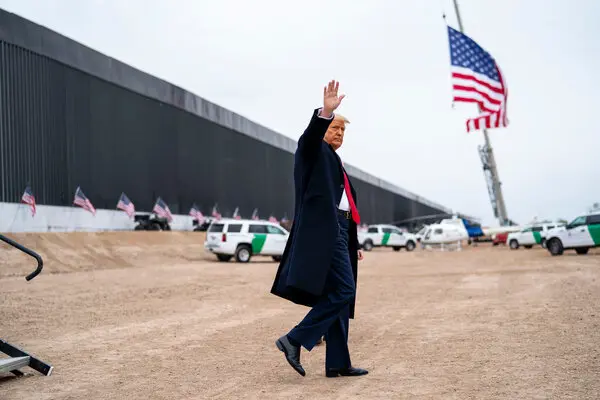
Gun Rights:
On April 15, 2023, at an NRA event, President Donald Trump made a statement about gun rights, saying “I was proud to be the most pro-gun, pro-Second Amendment president you’ve ever had in the White House.” The audience reacted positively, leaping to their feet and cheering while chanting “U-S-A” as he was introduced. Trump went on to express his appreciation for their support and stated that, with their backing in the 2024 election, he would once again be their “loyal friend and fearless champion” as the 47th President of the United States.
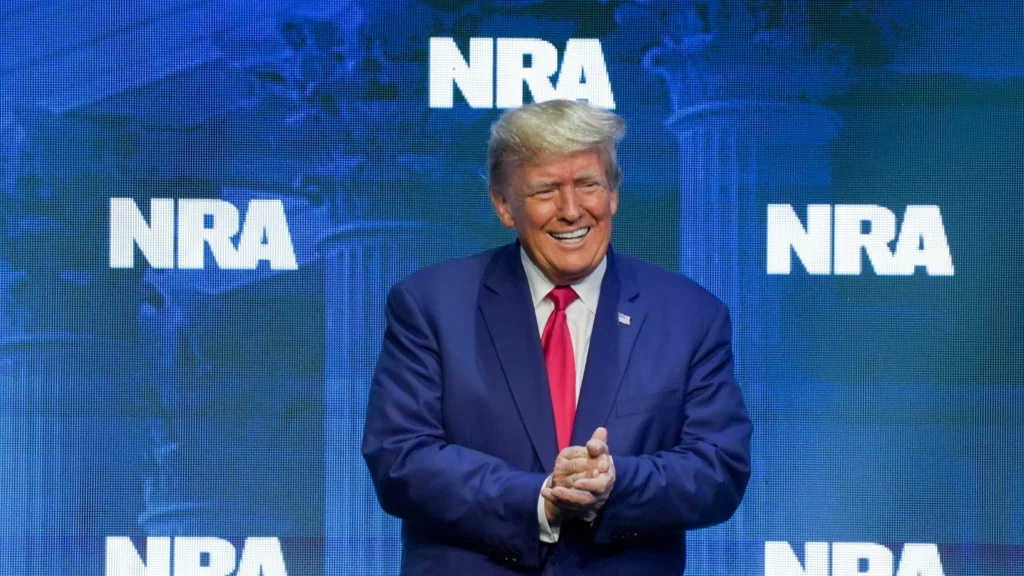
Conspiracy Theories:
Trump’s tendency to promote conspiracy theories and distrust of mainstream media has influenced some politicians to adopt similar positions. This can contribute to a breakdown of trust in institutions.
Personal Attacks:
Trump’s willingness to engage in personal attacks on opponents and critics has been emulated by some politicians, particularly on the right. This strategy is seen as a way to rally their base and undermine opponents.
Distrust of Experts:
Trump’s tendency to dismiss the opinions of experts and rely on his instincts has influenced some politicians to adopt a similar approach. This can lead to policies that are not grounded in evidence or expert opinion.
From MAGA to 2024: Trump’s Continuing Influence on the GOP and Presidential Hopefuls
Being an outspoken and bold personality, Trump has influenced many politicians and fellow presidential candidates in various aspects. Some of them are influenced by his working style, policies, active and courageous personality, and social media tactics during his presidency. Many of his competitors also aspire to be like him and want him to run for president in 2024 as they believe he is suitable to lead America once again while some of them oppose and criticize him. Apart from this Trump is still popular among the people and continuously influences and encourages potential candidates.
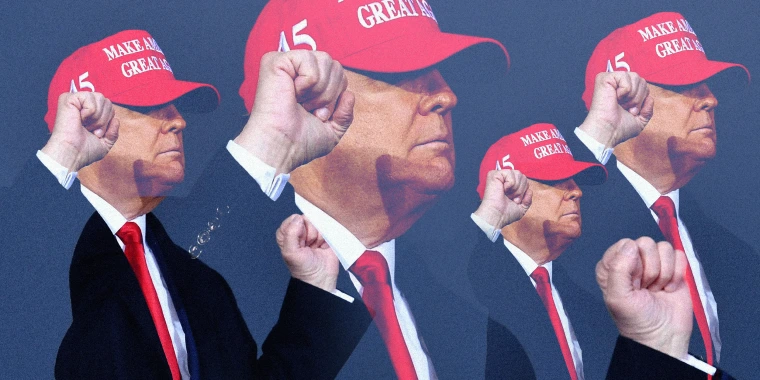
Some Notable Names are as follows:
Nikki Haley:
Nikki Haley, a potential Republican presidential candidate for 2024, may face a hurdle in the form of her former boss, Donald Trump, who remains popular among Republican voters. Although Haley has had a complicated relationship with Trump, having both criticized him and shown support, she did not mention him by name in her campaign announcement and speech, opting instead for a message focused on a new generation of leadership. However, some see her as struggling to appeal to either Trump’s loyal supporters or those who want to move on from him. Miles Taylor, a former National Security Council staff member, notes that Haley has a “massive Donald Trump problem” due to her political ambitions.
Vivek Ramaswamy:
Vivek Ramaswamy, a friend of Donald Trump, has acknowledged that he was influenced by Trump’s willingness to challenge the political establishment and his ability to connect with disenfranchised voters. However, Ramaswamy has also criticized Trump’s handling of the COVID-19 pandemic and his inflammatory rhetoric, stating that it was often divisive and undermined his ability to govern effectively. Overall, Ramaswamy’s views on Trump are complex and nuanced. His political views are shaped by various factors, including his background as an entrepreneur, his experience in the biotech industry, and his belief in individual liberty and limited government.
Tim Scott:
Senator Tim Scott of South Carolina seldom publicly criticizes the former president. Rather, he emphasizes his optimistic vision for the nation, which is a contrast to the former President’s darker and grievance-laden message. Despite Trump’s high name recognition among potential candidates, Scott believes that there is an opportunity for someone like him to offer a more optimistic leadership style that is desperately needed by the American people. “I see that America is starving for positive, optimistic leadership,” Said Scott in an interview with Huey-Burns. “I want to provide that alternative not to any specific candidate, but for the American people.“
Ron De Santis:
Trump has intensified his criticism of Florida Governor DeSantis, suggesting that he should not run for president in 2024, as it would hurt and divide the Republican Party. Trump believes that DeSantis would lose the massive MAGA vote, referring to the political movement he founded called “Make America Great Again.” The two are major contenders for the GOP nomination, with recent polls showing Trump in the lead. Trump Continues to Criticize DeSantis at Every Opportunity. DeSantis has also faced criticism from other Republicans on various issues, including a fight with Disney, negative news stories, a new abortion bill, and his views on supporting Ukraine not being a vital national interest.
Asa Hutchinson:
Previously, Asa Hutchinson had stated that he would not support Trump’s run for the presidency in 2024, citing concerns about Trump’s role in the January 6 insurrection and his focus on the past instead of the best interests of the country. However, he did not rule out supporting Trump if he becomes the Republican nominee, emphasizing the importance of selecting the best candidate to lead the country.
In conclusion, Donald Trump leaves a significant impact on global politics, particularly with his brand of populist politics, use of social media, and polarizing style. His influence is felt in various aspects such as anti-immigrant sentiment, trade protectionism, gender equality, border security, conspiracy theories, personal attacks, and distrust of experts. Trump’s bold and outspoken personality influences many politicians and fellow presidential candidates. Even so, his influence may prove to be a hurdle for potential candidates like Nikki Haley, who may struggle to appeal to both Trump’s loyal supporters and those who want to move on from him. In short, Trump’s impact on politics is complex and nuanced, and his legacy continues to shape the political landscape of the United States and beyond.